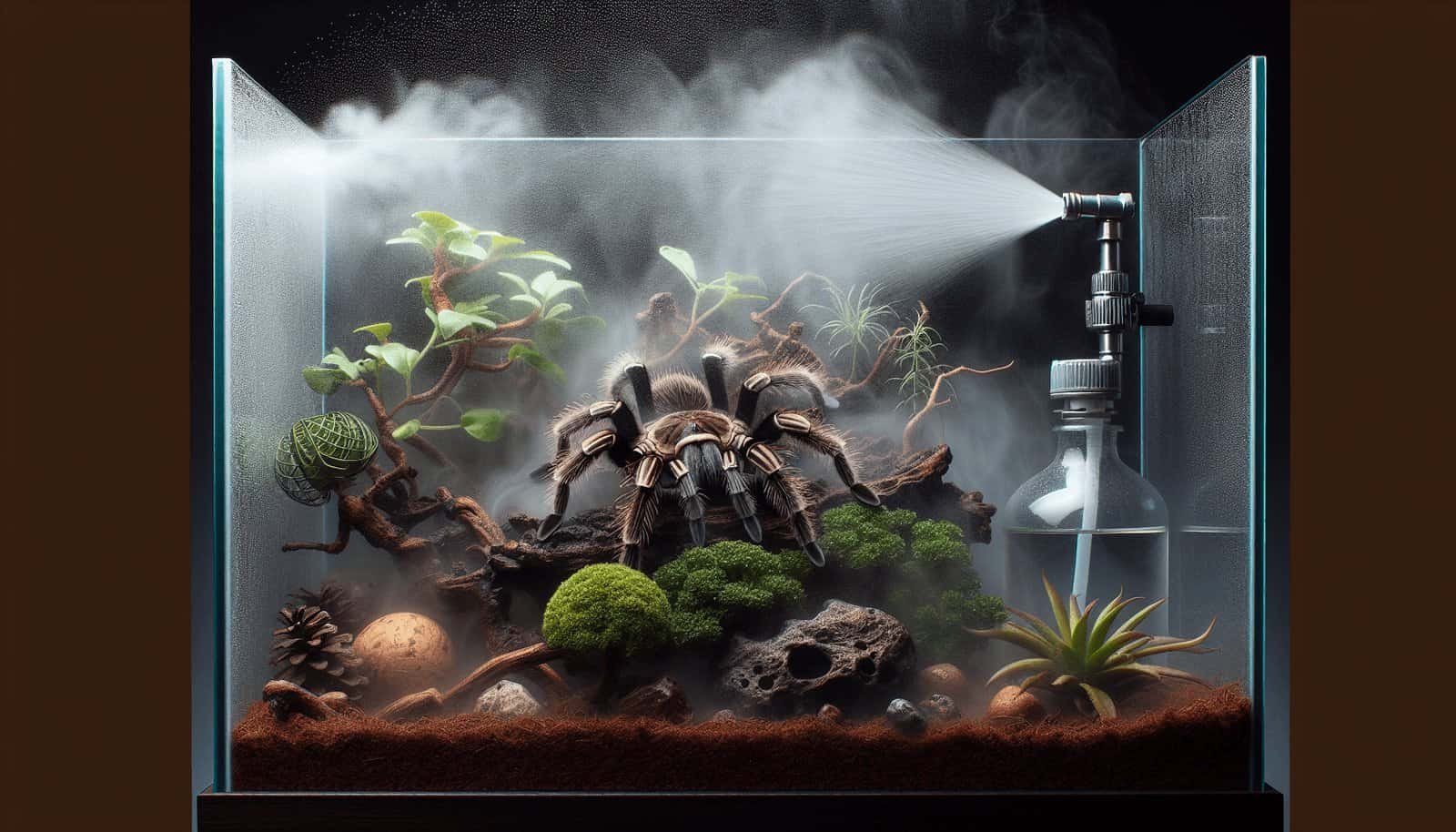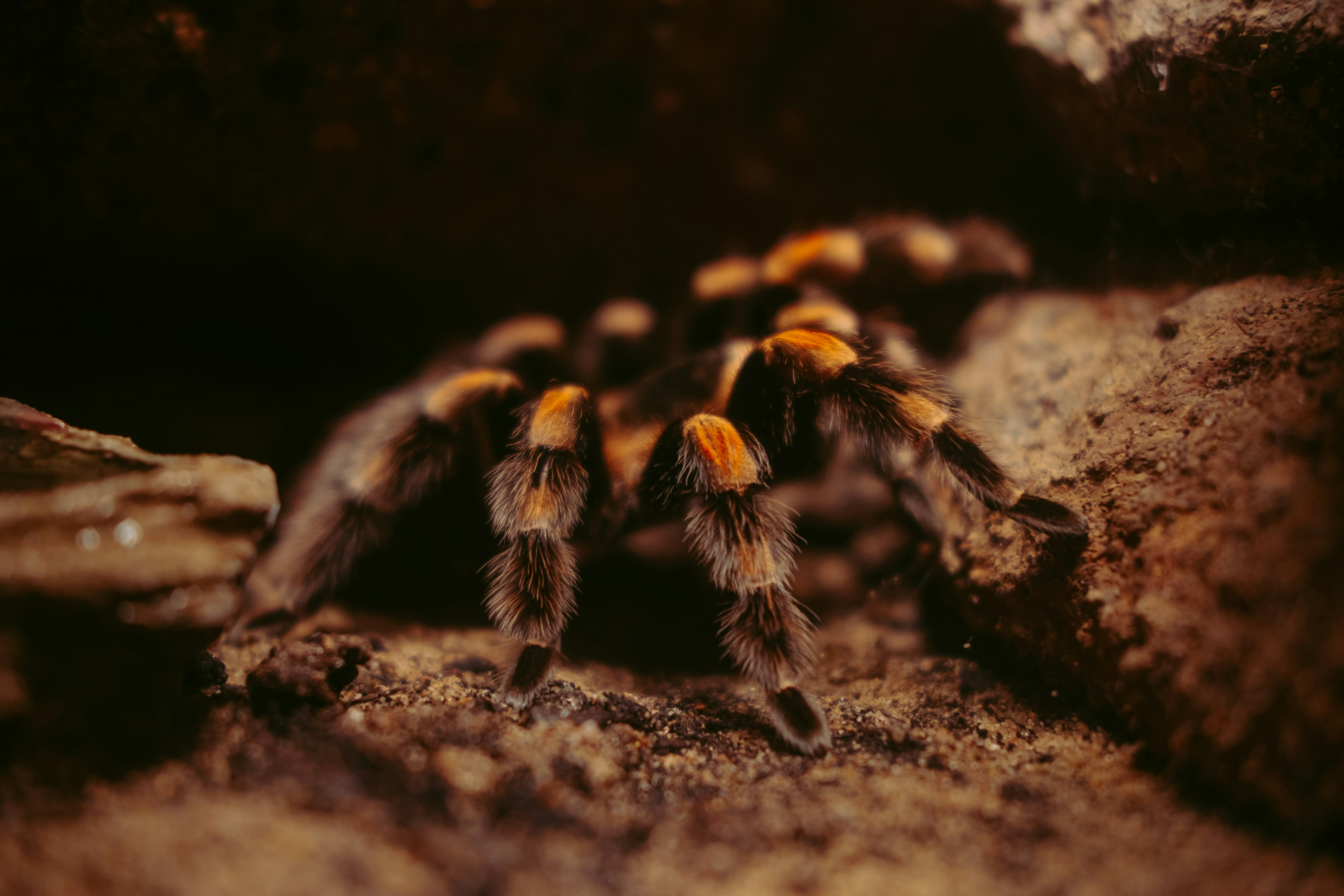Have you ever wondered whether tarantulas can be kept in enclosures with automated misting systems? You’re certainly not alone. This question is quite common among both novice and experienced arachnid enthusiasts. To provide a comprehensive answer, let’s delve into tarantula care requirements, the nature of automated misting systems, and how these two factors interact.
Understanding Tarantula Habitat Needs
Before we discuss the specifics of automated misting systems, it’s essential to understand the primary needs of tarantulas. Tarantulas come from varied habitats, so their requirements can differ.
Temperature and Humidity
Tarantulas generally thrive in warm, humid environments. However, the exact temperature and humidity levels depend on the species. For example, tropical species such as the Brazilian Black Tarantula require higher humidity levels, whereas desert species like the Mexican Red-Knee Tarantula need less humidity.
| Species | Preferred Temperature (°F) | Preferred Humidity (%) |
|---|---|---|
| Brazilian Black | 75-85 | 65-85 |
| Mexican Red-Knee | 70-80 | 50-60 |
Substrate and Vents
The substrate in the enclosure should mimic the tarantula’s natural habitat. For tropical species, substrates like coconut fiber or peat moss, which retain moisture, work well. Additionally, adequate ventilation is crucial to prevent mold and maintain healthy air flow.
The Role of Misting
Misting plays an important role in maintaining the desired humidity level in the enclosure. Traditionally, hobbyists have used manual misting methods to ensure the environment stays optimal for their tarantulas.
Manual vs. Automated Misting Systems
While manual misting methods can be effective, they require consistent daily effort. Automated misting systems offer convenience but come with their own set of advantages and drawbacks.
| Method | Advantages | Disadvantages |
|---|---|---|
| Manual Misting | Greater control, cost-effective | Time-consuming, inconsistent results |
| Automated Misting | Convenience, consistent humidity levels | Initial cost, chance of over-misting |
Pros and Cons of Automated Misting Systems
Automated misting systems can simplify maintaining the humidity in your tarantula’s enclosure. However, it’s essential to weigh the pros and cons before committing to this approach.
Pros
- Consistency: Automated systems maintain consistent humidity levels, which can be beneficial for species with strict humidity requirements.
- Time-Saving: Once set up, these systems reduce the time you need to spend monitoring and adjusting enclosure conditions.
- Reduces Stress: Minimizes disturbance to the tarantula, as routine manual misting can sometimes stress the creature.
Cons
- Over-misting: There’s a risk of over-misting, which can lead to mold and substrate substrate saturation.
- Malfunctions: Technical glitches in automated systems can result in either too much or too little humidity.
- Cost: Initial setup costs for automated misting systems can be high compared to manual alternatives.
Selecting the Right Automated Misting System
If you decide to go with an automated misting system, choosing the right one for your tarantula’s needs is critical. Various factors, like mist frequency, droplet size, and system reliability, should be considered.
Key Features to Consider
- Adjustability: Look for systems that allow for adjustable misting cycles and droplet size.
- Reliability: Opt for models with good user reviews and dependable performance.
- Ease of Installation: Choose systems that are easy to set up and maintain.
Popular Models
Here are a few popular automated misting systems that are often recommended by tarantula keepers:
| Model | Description | Price Range |
|---|---|---|
| Exo Terra Monsoon | Features programmable misting intervals | $120-$150 |
| MistKing Starter | Known for its durability and customization options | $150-$200 |
| Zoo Med Repti Rain | Basic model ideal for smaller enclosures | $50-$80 |
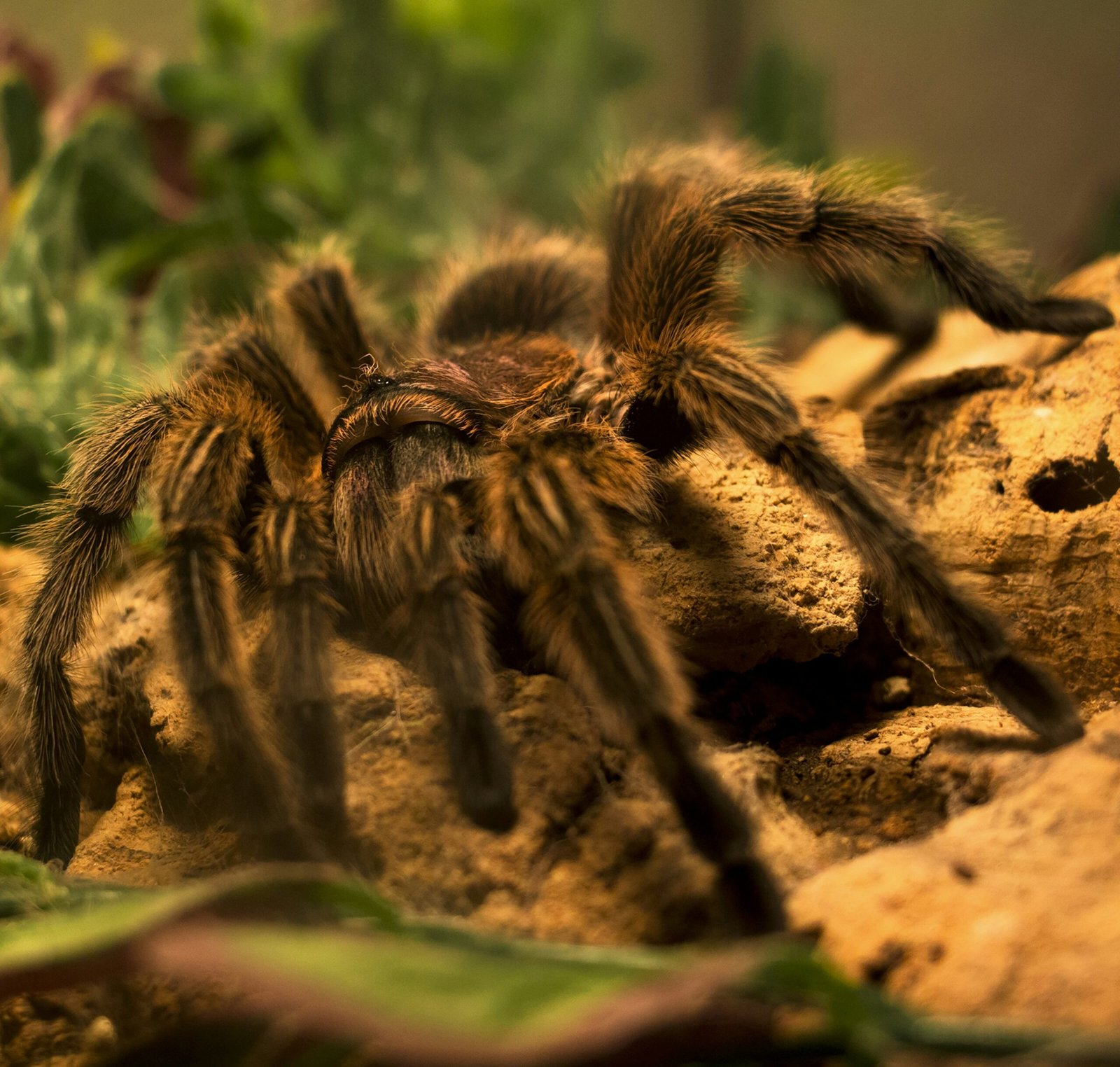
Implementing Automated Misting Systems
Once you’ve selected the right system, it’s time to set it up. Installation may vary somewhat between models, but some general guidelines can help ensure a smooth process.
Installation Steps
- Placement: Position the misting nozzles to cover the enclosure evenly without directly spraying the tarantula.
- Connect and Test: Set up the hoses and control units according to the manufacturer’s instructions, and run a few test cycles.
- Adjust Settings: Fine-tune the misting frequency and duration based on your tarantula’s specific humidity requirements.
Monitoring and Adjustments
Even after setting up an automated misting system, ongoing monitoring is crucial. Regularly check the enclosure’s humidity levels and make adjustments to the system as needed.
Maintenance and Troubleshooting
An essential aspect of using an automated misting system is keeping it well-maintained to avoid issues. Regular maintenance helps prolong the life of the system and ensures it functions correctly.
Cleaning and Maintenance
- Regular Cleaning: Clean the nozzles and water reservoir periodically to prevent clogs and bacterial buildup.
- System Checks: Periodically check all connections and hoses for any signs of wear or damage.
- Replace Parts: Replace any worn-out parts promptly to maintain efficiency.
Troubleshooting Common Issues
| Problem | Possible Cause | Solution |
|---|---|---|
| No Misting | Clogged nozzles or empty reservoir | Clean nozzles, refill reservoir |
| Over-Misting | Faulty timer settings | Adjust misting schedule |
| Uneven Coverage | Poor nozzle placement | Reposition the nozzles |
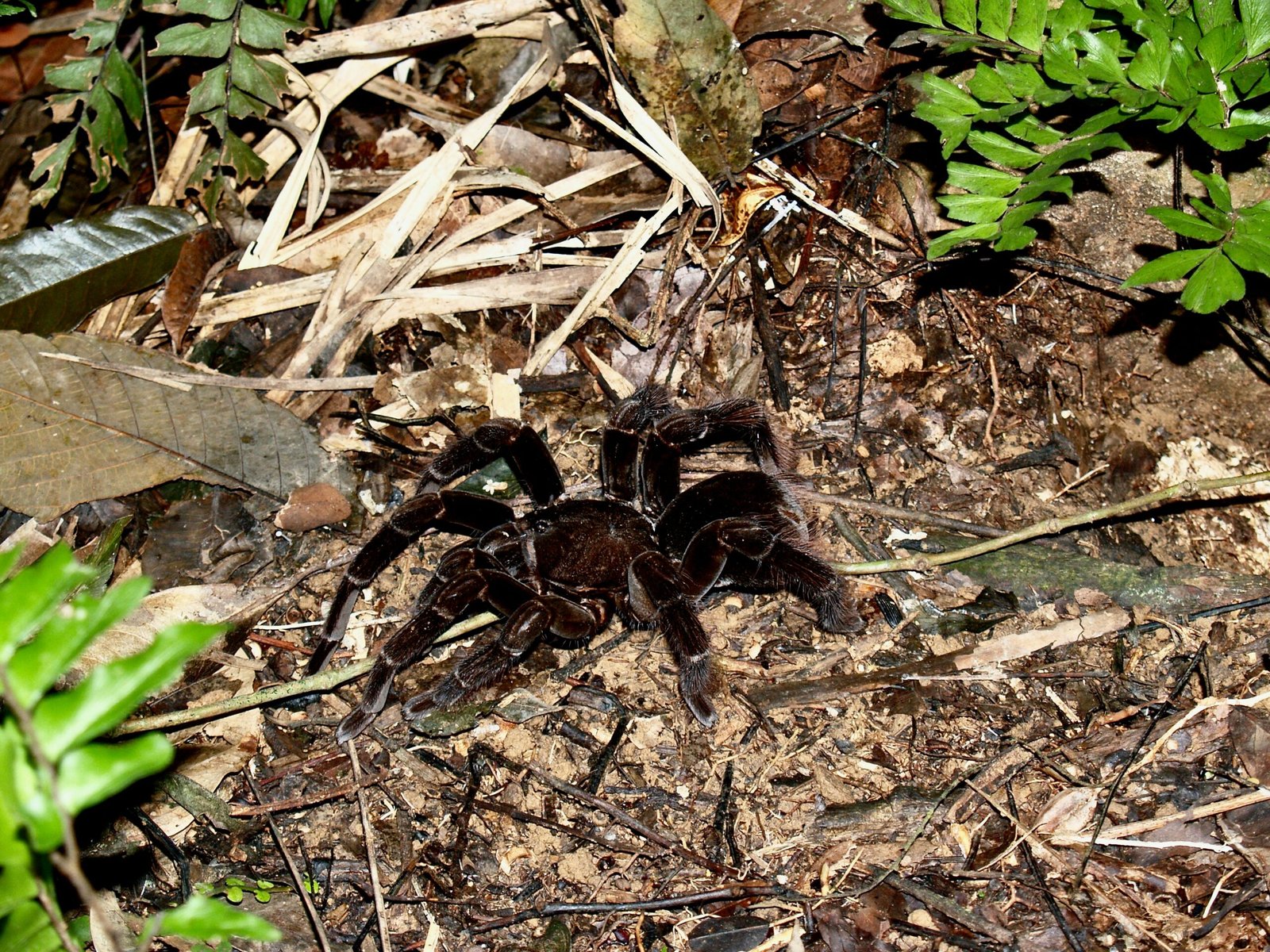
Species-Specific Considerations
Different tarantula species have unique habitat needs. While some thrive with high humidity, others may suffer. Understanding these requirements is vital for deciding whether to use an automated misting system.
Tropical Species
Tropical varieties like the Pinktoe Tarantula require high humidity levels, making them suitable candidates for automated misting systems. However, it’s crucial to adjust frequency and duration to avoid over-saturating the substrate.
Desert Species
Desert species such as the Arizona Blonde Tarantula have low humidity needs. Automated misting systems may not be necessary for them and could even be detrimental by creating excessively moist conditions.
Alternatives to Automated Misting Systems
If automated misting systems seem too complicated or expensive, there are simpler alternatives that can still help maintain ideal humidity levels.
Hygrometers and Manual Methods
Using a hygrometer to monitor humidity levels allows you to adjust manual misting more accurately. This approach combines the benefits of simplicity with the ability to react to real-time data.
Humidifiers
Placing a humidifier near the enclosure can help maintain ambient humidity levels without directly misting the enclosure. This can be useful for both tropical and desert species, depending on the settings used.
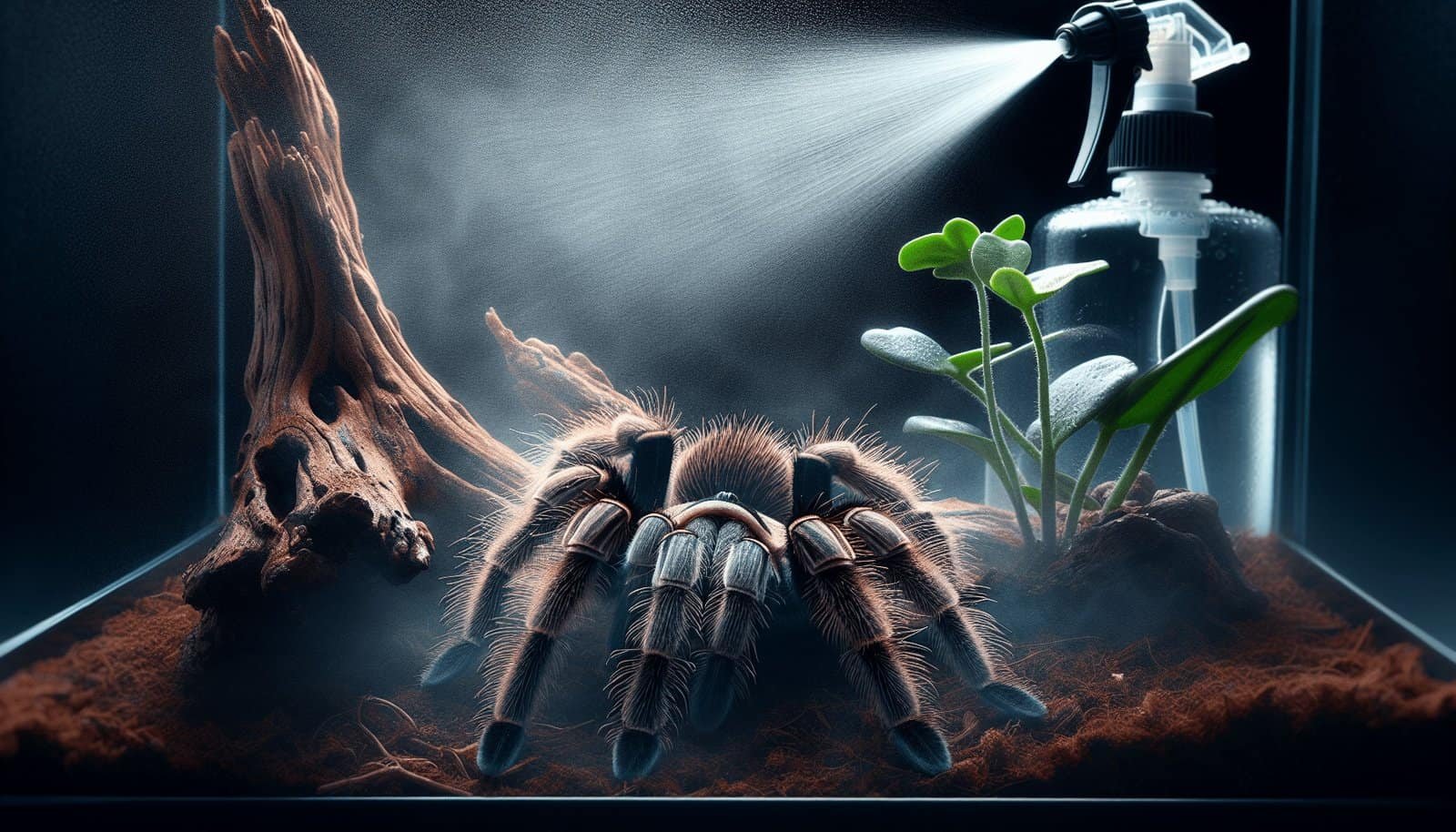
Pros and Cons Table for Quick Reference
To help you make an informed decision, here’s a summarizing table that outlines the pros and cons of using automated misting systems for tarantula enclosures:
| Criteria | Automated Misting Systems | Manual Misting Systems |
|---|---|---|
| Convenience | High – Offers convenience and reduces daily effort | Low – Requires daily attention |
| Consistency | High – Maintains consistent humidity levels | Variable – Depends on user consistency |
| Initial Cost | High – Requires upfront investment | Low – Minimal initial costs |
| Maintenance | Medium – Requires regular cleaning and occasional part replacement | Low – Simple and low-maintenance |
| Risk of Over-misting | High – Can occur due to malfunctions or incorrect settings | Low – Easier to monitor and adjust manually |
Conclusion
Deciding whether tarantulas can be kept in enclosures with automated misting systems involves several important considerations. While these systems offer significant advantages in terms of convenience and consistency, they also come with potential risks, such as over-misting and the initial setup cost.
However, understanding your tarantula species’ specific habitat needs, along with vigilant monitoring and maintenance, can make automated misting systems a viable option for maintaining a healthy and comfortable environment. Balancing technology with hands-on care can optimize your tarantula’s well-being, ensuring you provide the best possible habitat for your fascinating eight-legged friend.
